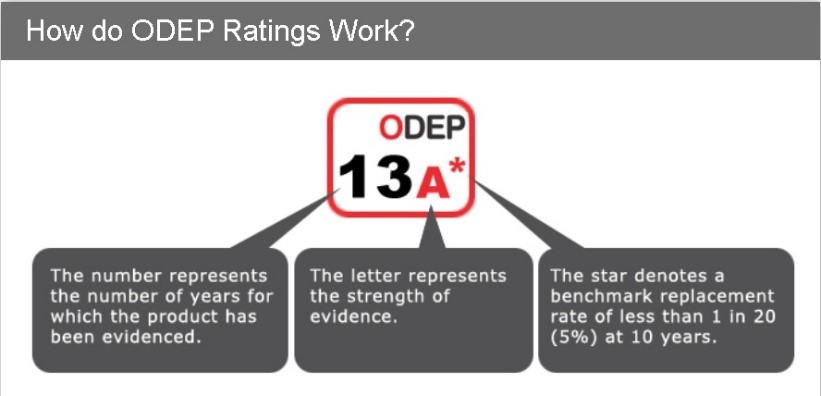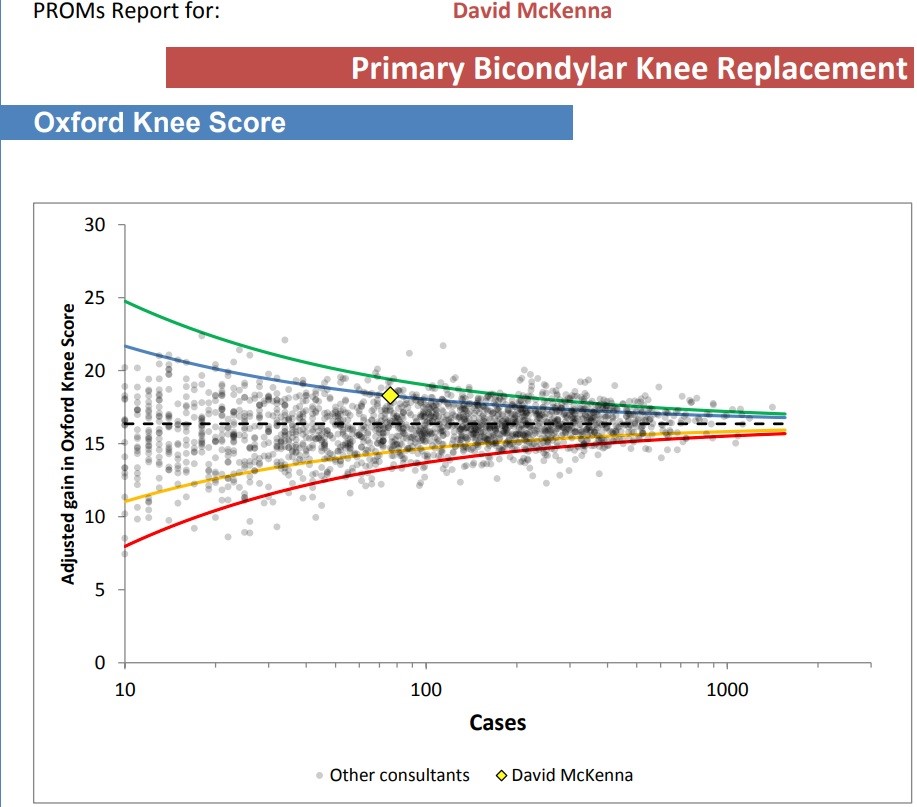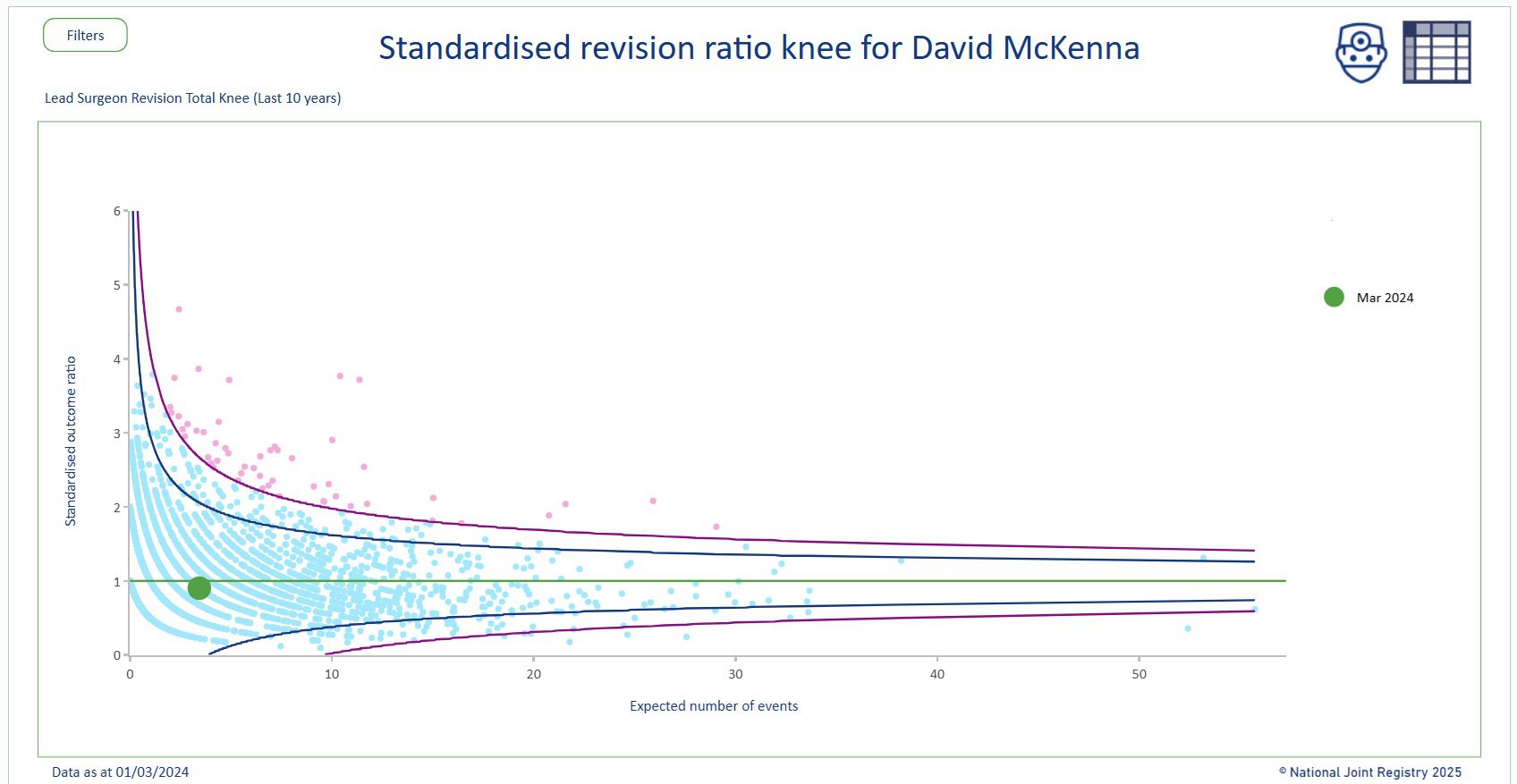Total knee replacement is a treatment for end-stage osteoarthritis where the cartilage over a significant portion of the knee joint is completely worn-through. Knee replacement is a highly successful operation when performed in the right patient, however there is no advantage to “having the knee replacement early”.
A knee replacement operation generally takes just under 1 hour and involves a stay in hospital of 2-3 days. Mr McKenna uses an enhanced recovery pathway with tourniquet used only for cementation (about 10mins), local anaesthetic infiltration and an adductor canal local anaesthetic block. The combination of these interventions means less post-operative pain and a quicker recovery.
PROMS report
David McKenna’s PROMS (Patient Reported Outcome Measure) and revision rate data for total knee replacement is shown in the graphs. This data is collected independently of the surgeon by the National Joint Registry. All Hip & Knee surgeons have access to their own data, very few publish their results.
First graph: PROMS (click to enlarge). Every knee surgeon in the UK is represented by a dot. The dots to the right of the chart are surgeons performing higher volumes of operations. The dashed line is the average improvement reported by their patients. Surgeons placed above the dashed line are achieving better outcomes than those below the line. Surgeons above the blue line are achieving the top 2.5% of outcomes. Surgeons below the red line are outlier surgeons producing poor results. Mr McKenna's outcomes are represented by the yellow dot.
Second graph: Standardised Revision Rates (click to enlarge). All UK knee surgeons are represented by a dot. Mr McKenna is represented by the Green dot. The green line is the average number of revisions. Those surgeons below the green line have a better than average revision rate - their joint replacements are lasting longer before needing revision. Surgeons above the upper red curve are "Outlier" surgeons whose revision rates are so bad they are of concern.




